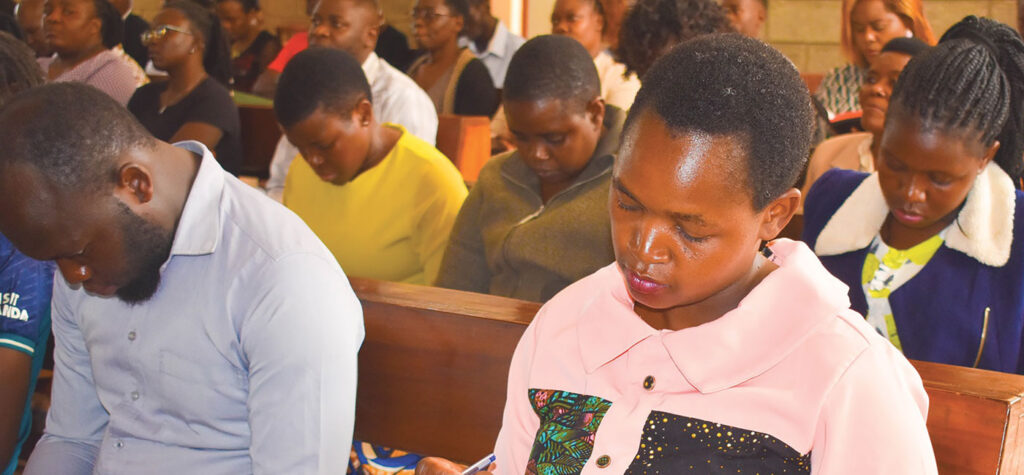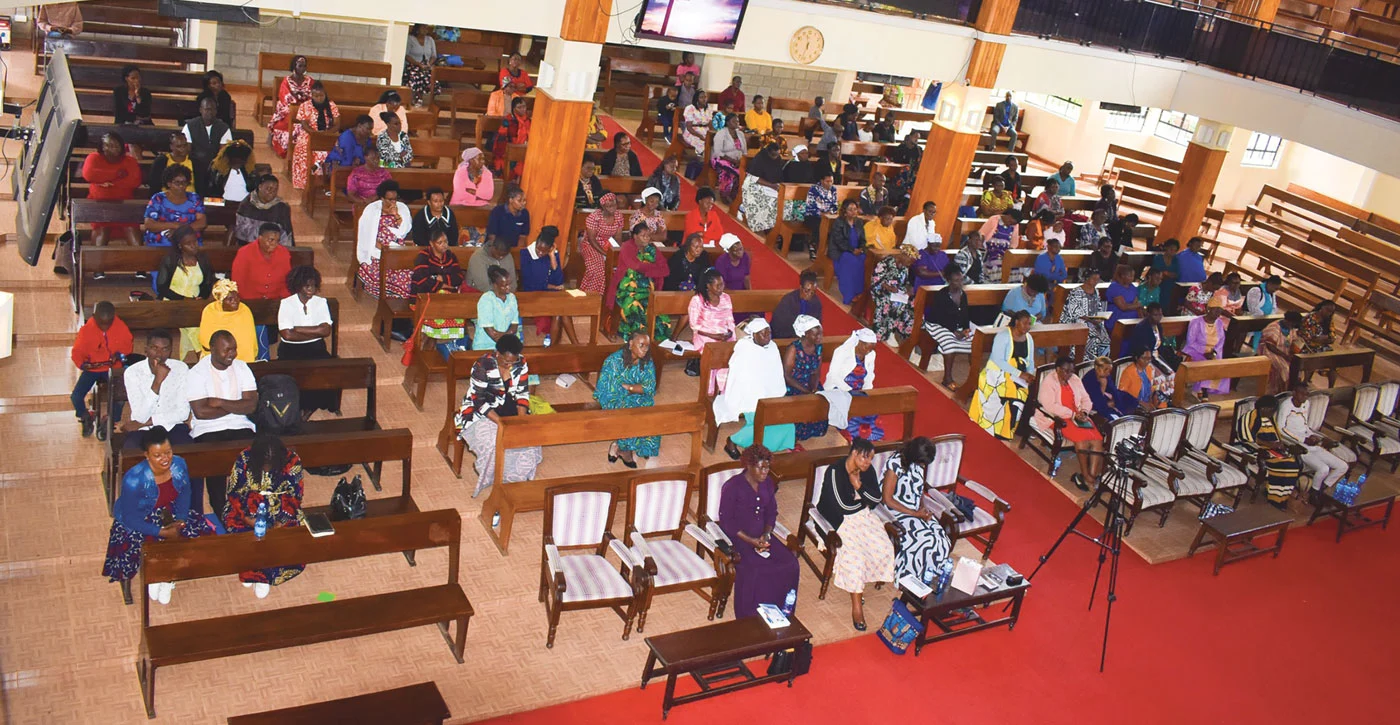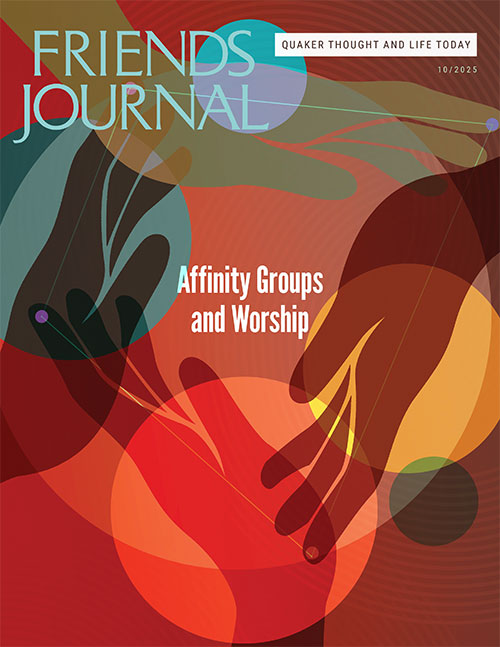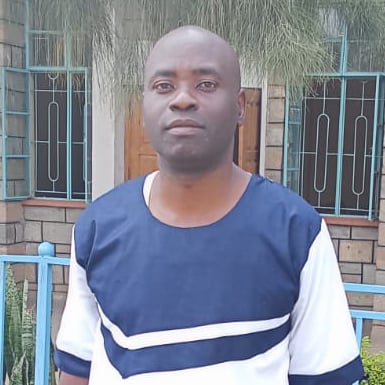Experiencing Silent Worship in a Noisy City
In Kenya, a unique meeting of Quakers has withstood time. This meeting is different from other Quaker meetings for worship within the city of Nairobi: many locals might not even recognize it as a Quaker meeting. Noise is a part of programmed worship in Nairobi, for noise is necessary to fit in with the urban ministry. This unique meeting, however, has no need for fitting in or showing off. Few Kenyan Quakers know of its existence.
Early Sunday morning, many Quaker souls in Nairobi embrace the morning breeze and go to their urban places of worship. They have expectations for the day: praise and worship followed by a sermon from a pastor or evangelist who’s inspired by the Holy Spirit to prepare a message for the congregation. They are also sure they will hear announcements that tell of the activity of the meeting. Sometimes, they get to witness meeting leaders show off their superiority to the other members through the power of their leadership. Urban Quaker meetings in Nairobi are noisy on Sundays. If one doesn’t consider it carefully, it is difficult to differentiate a Pentecostal or charismatic church from a Quaker meeting.

This unique, silent meeting, however, has settled down calmly in the midst of what I call the noisy worship in the city. The Friends (Quakers) Silent Meeting at Friends International Centre (FIC) Ngong Road is a meeting with its own identity. The meeting is in a building adjacent to the main worship sanctuary of the local church in FIC. The Friends Silent Meeting is a result of the example given by Quakers from other places in the world, especially from the West. The meeting is open every Sunday morning from 10 a.m. to noon. Japheth Mugami, the senior pastor of Ngong Road Meeting, notes that the members meet in total silence, just waiting upon the Lord. There is no singing, no dancing, and no announcements; the room is filled with total silence. One is only compelled to speak when moved by the Spirit. Senior pastor Mugami also noted that no giving is done in the service: no tithing or other offering. If there is an urgent need at hand, such as relief aid or charity work, members are notified through written communication in the meeting hall, and one gives as he or she is moved by the Spirit. In the meetingroom, a notice can be clearly seen on the upper part of the door, which states the time of meeting every Sunday. There is also a sign to alert everyone in the room that silent worship is happening.
Membership in the meeting is not as stable as it is in Nairobi’s programmed meetings. Friends visiting Kenya from other parts of the world, who worship silently, usually comprise most of those in attendance. The number of people present is not as great as in the programmed meetings (the Ngong Road Friends worship is attended by hundreds of members every Sunday). Once in a while, Quakers from Kenya who had a chance to visit the West and attend unprogrammed worship have a desire to join silent worship. Other members who are not Quakers but are conversant with the silent worship attend the meeting. In 2022, I had just settled in Bura in Tana River County, when I met a man of God on Facebook who was happy to find that Quakers were in the area. He explained that though he was not a Quaker, he always attended the silent worship at Ngong Road in the early morning on Sundays before going to minister in his church of Redeemed Gospel. He introduced me to a Quaker doctor, Norah P. James, from the United States who runs a community health program in Kenya known as CREME (Clean, Rest, Eat, Move, Everything). She normally attends this meeting every year when visiting Kenya.
In 2016, Nathan Siegel wrote “The Future of Quakerism Belongs to Kenya” for Roads and Kings, a culinary travel magazine cofounded by Anthony Bourdain, describing the scene of the unprogrammed worship:
A short walk from the main church is a separate nondescript building, void of color or decoration. Inside, six people sit in a semi-circle in complete silence with their heads bowed, either reading the Bible or praying. As Pastor Walter’s service echoes and bumps in the background, the group remains like this for over an hour. The six, half of whom are foreigners, are also Quakers.
Siegel attests to the fact that members who come here for worship are few, often visitors to Kenya.
It is my prayer that Kenyan Friends can embrace silent worship and that every yearly meeting can create space for such meetings.
Over 200 miles away, at Friends Theological College in Kaimosi, Benson Amugamwa Khamasi, a lecturer for our class in Quakerism, instructed us to sit in total silence for one hour. To us students, it was hell, since even spending five minutes in silence is punishment to an African. It was as if time had come to a standstill: looking at the clock we could not see any movement. It took almost 30 minutes for participants’ concentration to settle and our minds to clear. At first, it wasn’t easy, but after half an hour, everyone was silent; anxiety had vanished, and the whole room experienced an aura of the kind we’d never felt before. The memory still stands.
It is my prayer that Kenyan Friends can embrace silent worship and that every yearly meeting can create space for such meetings. More lessons on silent worship need to be taught by African Quaker scholars, so that the many Quakers of Kenya can know the deep heritage of Quakerism found in the silence before the Lord. Kenyan Quakers need to be connected to this traditional way of worship to create opportunities with God. Borrowing from the words of Mariellen O. Gilpin in “The Meaning of Silent Worship” in the October 2005 Friends Journal: “God makes opportunities with us—in a beautiful sunset, or in a moment of insight; silent worship is one of the ways we can make a highway for God in the wilderness of our lives.”
I look forward to having this experience soon in the silent meeting for worship at Ngong Road and to have an opportunity with my Creator.





Comments on Friendsjournal.org may be used in the Forum of the print magazine and may be edited for length and clarity.